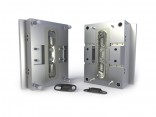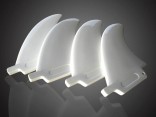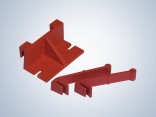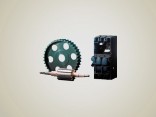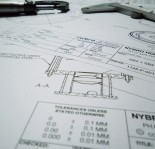When manufacturing a product using the Plastic Injection Moulding Process, it is important to have a uniform wall thickness to maintain the best form and shape.
OK….so your part is a little different and its shape is complex in order to achieve a specific function. Nybro has the ability to identify a moulding solution using computer software that analyses the plastic flow within the mould.
The benefit to our customer with our high tech approach, is greater success in our die trials, resulting in shorter lead times and lower prices.
Supporting Documents and Downloads
Videos
Injection Moulding Overview
This is a manufacturing process for producing parts from plastic materials. Molten plastic is forced into a steel mould and allowed to cool. The plastic sets in place and the part is removed from the mould.
Materials
Most polymers may be used, including all thermoplastics, some thermosets, and some elastomers. Common materials are Nylon, Acetal, Polyethylene, Polystyrene, Epoxy's, and PVC. Nybro can manufacture in an extensive range of materials. Food grade materials and compliance or products for medical use are available.
Tooling
Standard two plate tooling in a simple split die is the most economical. Multiple parts included in the same die further reduces costs. This is called a gang die.
Complex parts with deep cavities, undercuts and moulded threads or clips are possible, but require careful design to allow for tooling to operate. Nybro has extensive experience at manufacturing complex parts.
Co-Moulded parts, such as brass threaded inserts are also possible.
Material Additives
The standard material properties can be enhanced by adding reinforcements such as glass fibres or aluminium powders. In this sense they become a composite. Glass fibres assist in increasing the tensile strength of the plastic and can be added in varying amounts up to 50% without problems. UV inhibitors, colours, pigments, pearlescents, can all be added to increase the aesthetic qualities and durability of the product.
Die Trials
Before commencing production, die trials are produced to ensure that the parts meet the design requirements. Extensive testing is conducted to determine if the tooling design is a success. All of the mould parameters are determined for production including temperature, injection time, cooling time etc.
Post Treatment
To modify the material properties after moulding, post treatments can be conducted such as stress relieving, pressurised impregnation of lubricants, surface treatments and finishes such as enamelling, screen printing, chrome plating and polishing.
Key Features
Technical Information



